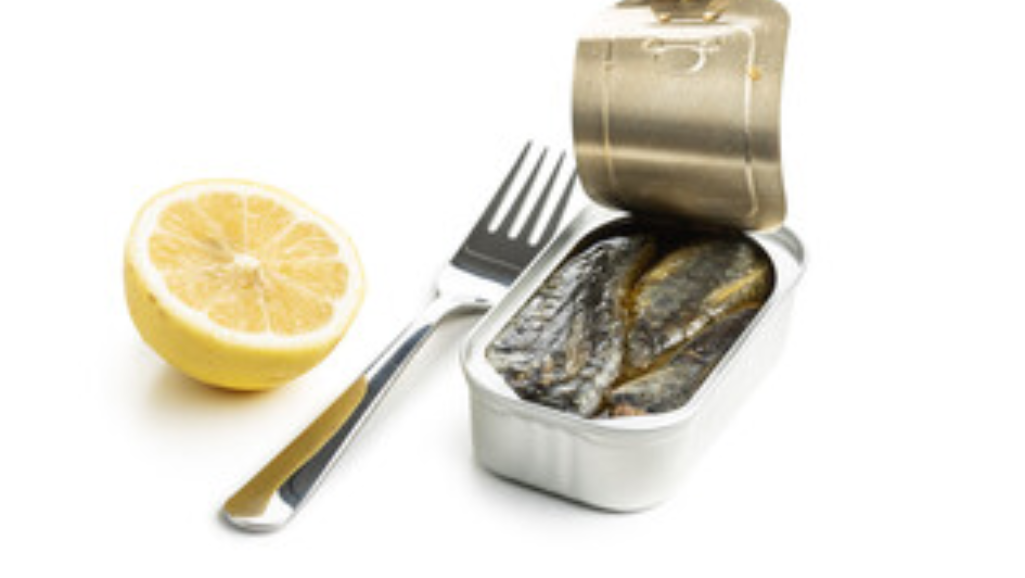Looking to make a healthy choice for your next tin of fish? You’ve come to the right place! In this article, we’ll explore the top contenders for the title of healthiest tinned fish. From tuna’s nutritional powerhouse to sardines’ omega-3-packed goodness, we’ll break down the benefits of each option. So, whether you’re after heart-healthy fatty acids or essential vitamins and minerals, we’ve got you covered. Get ready to dive into the world of tinned fish and discover which one reigns supreme in terms of healthiness.
Tuna: A Nutritional Powerhouse
When it comes to choosing the healthiest tinned fish, tuna reigns supreme as a nutritional powerhouse. Tuna is packed with essential nutrients, making it a popular choice for health-conscious individuals. It is an excellent source of high-quality protein, which is important for muscle growth and repair. Tuna is also rich in omega-3 fatty acids, which have been shown to have numerous health benefits, including reducing the risk of heart disease and inflammation.
Moreover, tuna is a versatile ingredient that can be used in a variety of delicious recipes. From refreshing salads to hearty sandwiches, there are endless ways to incorporate tuna into your meals. Tuna melts, pasta dishes, and sushi rolls are just a few examples of the wide range of tuna recipes available.
In addition to its nutritional value and culinary versatility, tuna sustainability is an important factor to consider. Overfishing has led to declining tuna populations in some regions. To ensure that you are making an environmentally responsible choice, look for tuna that is sustainably sourced and caught using methods that minimize bycatch and damage to marine ecosystems.
When it comes to health, taste, and sustainability, tuna is a clear winner. With its nutritional benefits, versatility in the kitchen, and sustainable sourcing options, it’s no wonder that tuna remains a popular choice for those looking for a healthy and delicious addition to their diet.
Sardines: Packed With Omega-3s
Now let’s dive into the next tinned fish option that is packed with omega-3s: sardines. These tiny fish are not only delicious but also highly nutritious. Here’s why you should consider adding sardines to your diet:
- High Omega-3 Content: Sardines are an excellent source of omega-3 fatty acids, which are essential for heart health. In fact, sardines contain even more omega-3s than anchovies, making them a superior choice in terms of omega-3 content.
- Nutritional Value: Sardines are packed with nutrients. They are rich in protein, vitamins, and minerals, including calcium and iron. These nutrients support bone health, boost the immune system, and aid in energy production.
- Sardines vs. Anchovies: When it comes to omega-3 content, sardines outshine anchovies. While both fish provide omega-3s, sardines offer a higher concentration, making them a more potent source of this essential nutrient.
- Sardines Recipes: There are countless delicious ways to incorporate sardines into your diet. You can enjoy them on toast, in salads, or even as a topping for pizza. Sardines also work well in pasta dishes and can be used to make flavorful spreads or dips.
Incorporating sardines into your meals is a simple and tasty way to boost your omega-3 intake and reap the many health benefits they offer.
Salmon: Rich in Heart-Healthy Fatty Acids
Salmon is an excellent choice for heart health due to its high content of heart-healthy fatty acids, specifically omega-3s. Different varieties of salmon offer varying levels of omega-3s, with wild-caught salmon generally containing higher amounts than farmed salmon. While fresh salmon is often considered the best option, canned salmon can also provide a convenient and cost-effective way to incorporate this nutrient-rich fish into your diet.
Omega-3 Benefits for Heart
To prioritize your heart health, opt for tinned fish rich in heart-healthy fatty acids, such as salmon. Omega-3 fatty acids found in salmon offer numerous benefits for your cardiovascular system. Here are four ways omega-3s can support your heart health:
- Reduces inflammation: Omega-3s possess anti-inflammatory properties, which can help lower the risk of heart disease and prevent blood clot formation.
- Lowers triglyceride levels: High levels of triglycerides increase the risk of heart disease. Consuming foods rich in omega-3s, like salmon, can help lower triglyceride levels and improve heart health.
- Improves heart rhythm: Omega-3s can help regulate your heart rhythm and reduce the risk of abnormal heartbeats, known as arrhythmias.
- Lowers blood pressure: Studies have shown that omega-3s can help lower blood pressure, a major risk factor for heart disease.
Incorporating salmon into your diet is a delicious way to support your heart health and enjoy the benefits of omega-3 fatty acids.
Different Salmon Varieties Comparison
Which tinned fish offers the healthiest comparison of different salmon varieties when it comes to heart-healthy fatty acids? When it comes to salmon, both canned and fresh options can provide a good source of these beneficial fats. However, there are some differences to consider. Fresh salmon generally contains higher levels of heart-healthy omega-3 fatty acids compared to canned salmon. This is because the canning process may cause some loss of these fatty acids. On the other hand, canned salmon often has lower mercury levels compared to fresh salmon. This is because the canning process involves removing the skin and bones, which are areas where mercury tends to accumulate. To help you understand the differences better, here is a comparison table of different salmon varieties:
| Salmon Variety | Omega-3 Fatty Acid Content | Mercury Level |
|---|---|---|
| Fresh Salmon A | High | Moderate |
| Fresh Salmon B | High | Low |
| Canned Salmon A | Moderate | Low |
| Canned Salmon B | Moderate | Very Low |
| Canned Salmon C | Low | Very Low |
Canned Vs. Fresh Salmon
When choosing between canned and fresh salmon, you can determine the healthiest option by comparing their levels of heart-healthy fatty acids. Here’s a breakdown of the nutritional value of each:
- Canned Salmon:
- Canned salmon is a convenient option that retains its nutritional value.
- It is a great source of omega-3 fatty acids, which promote heart health.
- Canned salmon is also high in protein and low in saturated fat.
- Be mindful of the sodium content, as some canned varieties may contain added salt.
- Fresh Salmon:
- Fresh salmon is a versatile and delicious choice.
- It contains similar levels of omega-3 fatty acids as canned salmon.
- Fresh salmon is a good source of vitamins D and B12.
- It is also low in calories and high in protein, making it a nutritious option.
Ultimately, both canned and fresh salmon offer numerous health benefits. The choice between them depends on factors such as convenience, taste preference, and sodium intake.
Mackerel: A Source of Essential Vitamins and Minerals
You can find essential vitamins and minerals in mackerel, a tinned fish that is considered the healthiest option. Mackerel is packed with nutrients that are beneficial for your overall health. It is a great source of omega-3 fatty acids, which are essential for brain health and reducing the risk of heart disease. In addition, mackerel is high in vitamin D, which plays a crucial role in bone health and immune function.
Here is a table highlighting some of the key vitamins and minerals found in mackerel:
| Vitamin/Mineral | Benefits |
|---|---|
| Omega-3 Fatty Acids | Supports brain health and reduces the risk of heart disease |
| Vitamin D | Promotes bone health and boosts immune function |
| Vitamin B12 | Essential for nerve function and the production of red blood cells |
| Selenium | Acts as an antioxidant and supports thyroid function |
| Potassium | Helps maintain healthy blood pressure levels and supports heart health |
Including mackerel in your diet can provide numerous health benefits. It can be enjoyed in various ways, such as grilled, baked, or added to salads. Try incorporating mackerel into your meals with delicious recipes like spicy mackerel tacos or grilled mackerel with citrus salsa. By adding this nutritious fish to your diet, you can ensure you are getting the essential vitamins and minerals your body needs to thrive.
Anchovies: A Flavorful and Nutrient-Dense Option
Are you looking for a tinned fish option that is not only flavorful but also packed with nutrients? Look no further than anchovies. These small fish are rich in omega-3 fatty acids, which have been shown to have numerous health benefits, including reducing inflammation and improving heart health. Additionally, anchovies have low levels of mercury compared to larger fish, making them a safe choice for regular consumption. With their unique taste and versatility in recipes, anchovies are a great addition to your pantry.
Omega-3 Benefits
To optimize your health, consider incorporating anchovies into your diet as they pack a flavorful punch and are loaded with essential nutrients like omega-3 fatty acids. Omega-3 fatty acids have numerous benefits for your brain and overall health. Here are four key reasons why anchovies are a great source of omega-3 benefits:
- Brain Health: Omega-3 fatty acids found in anchovies are crucial for brain development and function. They can support memory, cognition, and overall brain health.
- Inflammation Reduction: Omega-3s have powerful anti-inflammatory properties, which can help reduce chronic inflammation in the body. This can potentially lower the risk of diseases like heart disease, arthritis, and certain types of cancer.
- Heart Health: Omega-3 fatty acids are known to promote cardiovascular health by reducing the risk of heart disease. They can lower triglyceride levels, reduce blood pressure, and prevent the formation of blood clots.
- Eye Health: Omega-3s play a vital role in maintaining good eye health. They can help prevent age-related macular degeneration and dry eyes.
Incorporating anchovies into your diet can provide you with the many benefits of omega-3 fatty acids, supporting your brain health, reducing inflammation, and promoting overall well-being.
Low Mercury Levels
Continuing from the previous subtopic, incorporating anchovies into your diet as a flavorful and nutrient-dense option ensures low mercury levels. Anchovies are known for their low mercury content, making them a safe choice for regular consumption. Low mercury fish provide numerous health benefits, including the promotion of heart health, brain function, and eye health.
Here is a table that compares the mercury levels in different tinned fish options:
| Tinned Fish | Average Mercury Level (ppm) |
|---|---|
| Anchovies | 0.015 |
| Sardines | 0.013 |
| Mackerel | 0.050 |
| Tuna | 0.118 |
As you can see, anchovies have the lowest mercury content among the listed options, making them an excellent choice for those looking to minimize mercury exposure while enjoying the health benefits of tinned fish. So go ahead and add some anchovies to your meals for a tasty and nourishing addition to your diet.
Versatility in Recipes
Incorporating anchovies into your meals offers a versatile and flavorful option that is packed with nutrients. Here are some ways you can make the most of this tiny fish:
- Boost your pasta dishes: Add chopped anchovies to your tomato sauce for a rich umami flavor that will elevate your pasta dishes to new heights.
- Enhance your salad dressings: Mash anchovies into your favorite vinaigrette for a tangy and savory twist that will add depth to your salads.
- Amp up your pizza: Scatter anchovy fillets on top of your pizza along with other toppings for a burst of saltiness that pairs perfectly with cheese and vegetables.
- Create a flavorful dip: Blend anchovies with garlic, lemon juice, and olive oil to make a delicious and nutritious dip for your veggies or bread.
In addition to their versatility in cooking, anchovies also offer numerous health benefits. They are a great source of omega-3 fatty acids, which support heart health and reduce inflammation. Anchovies are also rich in protein, calcium, and iron, making them a nutrient-dense choice for your meals.
Trout: High in Protein and Low in Calories
Trout offers a healthy option due to its high protein content and low calorie count. It is a nutritious choice for those looking to maintain a balanced diet. With approximately 20 grams of protein per 100 grams, trout provides a significant amount of this essential macronutrient. Protein is essential for building and repairing tissues, supporting the immune system, and promoting satiety.
In addition to its protein content, trout is also low in calories, making it a suitable choice for those watching their calorie intake. With only 168 calories per 100 grams, trout can be enjoyed without worrying about excessive calorie consumption. This makes it a great option for individuals looking to manage their weight or maintain a calorie deficit.
Trout is not only high in protein and low in calories but also rich in beneficial nutrients. It is an excellent source of omega-3 fatty acids, which are essential for brain health, reducing inflammation, and supporting heart health. Furthermore, trout provides important vitamins and minerals such as vitamin D, vitamin B12, selenium, and potassium.
Herring: A Great Source of Omega-3 Fatty Acids
To determine which tinned fish is the healthiest, let’s explore the benefits of herring, a great source of omega-3 fatty acids. Omega-3 fatty acids are essential fats that play a crucial role in maintaining optimal health. Here are four reasons why herring is an excellent choice for obtaining these important nutrients:
- Rich in Omega-3s: Herring is one of the highest natural sources of omega-3 fatty acids. These fats are known for their numerous health benefits, including reducing inflammation, improving heart health, and supporting brain function.
- Heart-Healthy: The omega-3s found in herring have been shown to lower triglyceride levels, reduce blood pressure, and decrease the risk of heart disease. Including herring in your diet can help promote a healthy cardiovascular system.
- Brain Function: Omega-3 fatty acids are essential for brain development and function. Consuming herring can support cognitive function, improve memory, and reduce the risk of age-related cognitive decline.
- Anti-Inflammatory Properties: The omega-3s in herring possess anti-inflammatory properties, which can help alleviate symptoms of inflammatory conditions like arthritis and promote overall joint health.
Incorporating herring into your diet can provide you with a significant amount of omega-3 fatty acids, which are crucial for your health. So, next time you’re looking for a tin of fish, consider reaching for herring to reap its many benefits.


